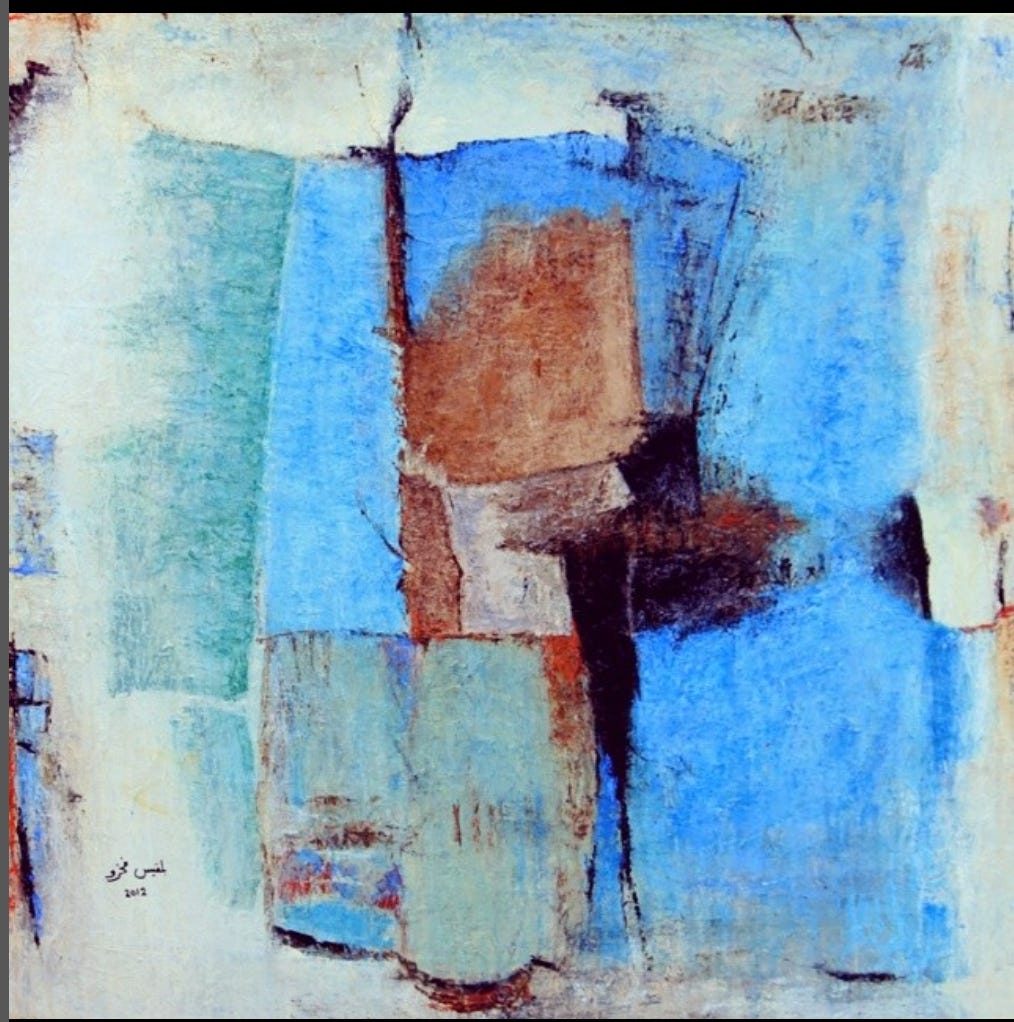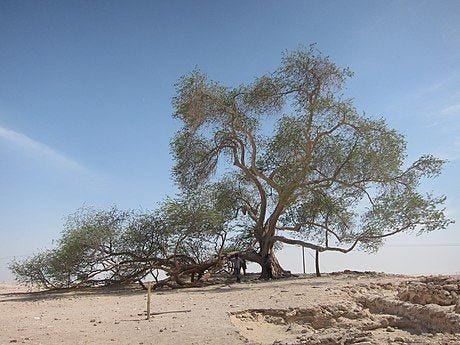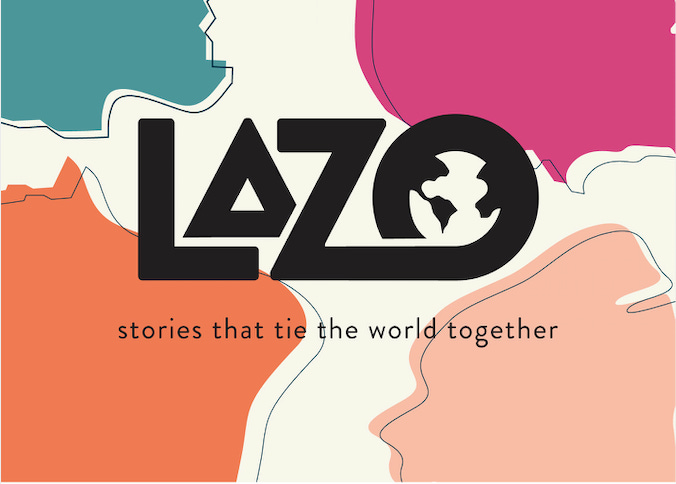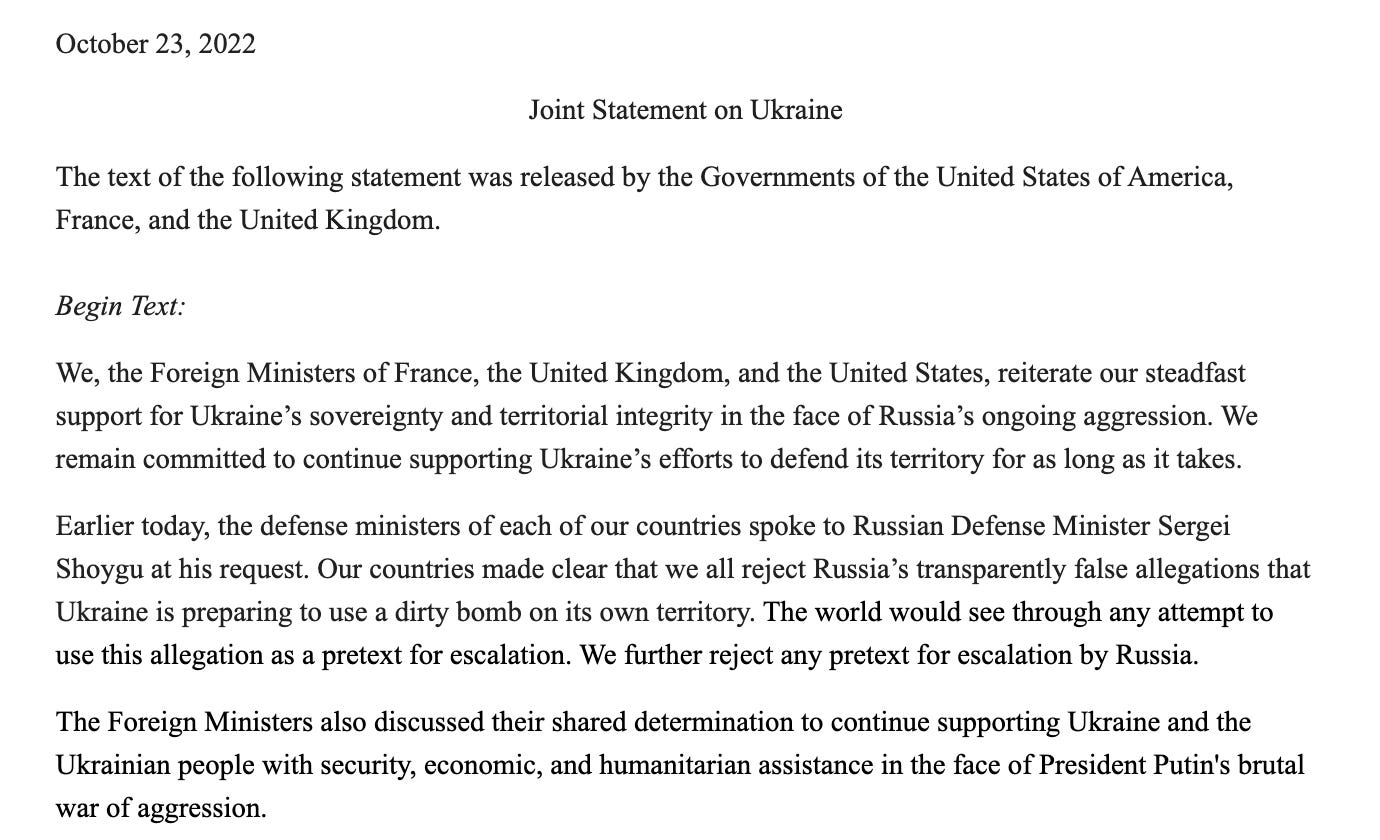#13 Bahrain
Whenever I think of Bahrain, I immediately think of its bigger neighbor Saudi Arabia. A small island nation on the coast of the Persian Gulf, Bahrain is often described as a Saudi playground, where Saudi men escape the confines of tradition to drink alcohol and visit brothels.
I've also heard numerous stories about Saudi women who have their chauffeurs drive them to Bahrain for a weekend away. Once on the other side of the border, they engage in scandalous behavior like driving a vehicle or smoking a hookah. Saudis are often so anxious to escape for a few hours of freedom and fun that cars have to wait for hours on the King Fahd Causeway, which connects Bahrain to the Saudi mainland.
Bahrain is also a relatively diverse place, where expats from various countries and faiths mix. Most estimates claim that over half of Bahrain's population is foreign at any given time.
Welcome to the 195 series, where I take you on a mini-tour of every country (and maybe some places that want to be countries). Each week I'll feature a new location. Some you may have heard of, while others may be new to you. The point is to learn and nurture our curiosity about the wider world. Maybe you'll find a new artist or musician you like, too.
Here's the link to copy and paste in your browser if you're interested in supporting this project: https://lazo-letters.ghost.io/#/portal/signup. You can sign up for $2 a month or $22 a year.
Country Info:
Population: Roughly 1.7 million.
Current government: Bahrain is a constitutional hereditary monarchy ruled by King Hamad bin Isa bin Salman Al Khalifa since 2002.
Bahrain’s Sunni-led monarchy dominates state institutions, and elections for the lower house of parliament are no longer competitive or inclusive. Since violently crushing a popular prodemocracy protest movement in 2011, the authorities have systematically eliminated a broad range of political rights and civil liberties, dismantled the political opposition, and cracked down harshly on persistent dissent concentrated among the Shiite population.
Languages spoken: Arabic is the official language, but some people also speak Farsi or Urdu. English is also widely spoken.
Religion: Bahrain's constitution declares Islam as the official religion, and most of the country is Sunni.
According to a 2021 report from the State Department,
The law prohibits anti-Islamic publications and mandates imprisonment for “exposing the state’s official religion to offense and criticism.” There is no legal prohibition against apostasy. The penal code punishes any individual who mocks or disdains another religious group. Nongovernmental organizations (NGOs), media, and opposition outlets said the government continued to question, detain, and arrest Shia clerics. NGOs stated prison authorities routinely denied Shia prisoners needed medical treatment more often than Sunni prisoners.
Standout artist: Balquees Fakhro, one of Bahrain’s most prominent female artists.

Standout film: The Sleeping Tree (Alshajarh Alnaemah), a 2014 film in which a couple from Bahrain struggles to come to terms with their daughter's cerebral palsy.
A surprising thing: More trees. Bahrain is home to a mysterious "tree of life," which is over 400 years old and continues to thrive despite having no apparent water source. It stands on a hill in a barren region of the Arabian Desert.

Story of the week: Pope Francis will visit Bahrain from November 3-6. Leading Bahraini rights activists are urging the Vatican to address some serious religious freedom concerns during Pope Francis's scheduled visit to Manama next month, according to the Middle East Eye. They have also asked him to bring up the issue of political prisoners.
What I'm writing:
• In the third article for our series from Poland, I describe how Russian President Vladimir Putin’s war is transforming the once-strained relationship between Poles and Ukrainians. This story is unlocked and free to read.
My dispatch from Przemyśl, where the war in Ukraine is changing decades of tensions between Poles and Ukrainians, is out and free to read.
This is the third story in our series, “The Ukrainian exodus."
Thanks to @boell_us for supporting this project:https://t.co/hj7LpGAECq— Cristina Maza (@CrisLeeMaza) October 25, 2022
• In my fourth and final story from Poland, I write about a tiny village near the German border where the anti-Nazi resistance met during World War II. The town of just 200 inhabitants has now mobilized to take in around 100 Ukrainians. This story is unlocked and free to read.
A tiny Polish village where the anti-Nazi resistance met during World War II is now a shelter for Ukrainians.
The fourth and final story in our series, The Ukrainian Exodus, is out and free to read.
Thanks to @boell_us for supporting this projecthttps://t.co/MsultT6GI7— Cristina Maza (@CrisLeeMaza) October 27, 2022
• I profiled an activist from the Eastern Ukrainian city of Lugansk who described what it was like to have to leave her home to escape Russian aggression twice in just 34 years.
What I'm reading:
• Russia’s defense minister accused Ukraine of planning to use a so-called dirty bomb – a claim that U.S. officials strongly refuted as a Russian false flag operation, CNN reports. U.S. officials say Russia’s claims could be a pretext for Moscow to use such a weapon.
• The investigative site Bellingcat tracked down the team behind the Russian missiles targeting civilian infrastructure in Ukraine. These people look so normal.
Ever wonder how Russian cruise missiles find their way into Ukrainian playgrounds, power stations, and apartment buildings? Well thanks to @bellingcat’s @christogrozev wonder no more. It’s time to meet the team behind the targeting of Russian missiles on civilian infrastructure. pic.twitter.com/HHRrmUE3jQ
— Eliot Higgins (@EliotHiggins) October 24, 2022
• The Biden administration imposed sanctions on more than 20 Moldovan and Russian individuals and entities for assisting Russian efforts to manipulate Moldova’s political system. Vladimir Plahotniuc, a Moldovan politician, businessman, and oligarch who is prominent in Moldova's political life, is on the list of sanctioned individuals.
We are designating Vladimir Plahotniuc, Ilan Shor, and 19 other individuals and entities related to systemic corruption and Kremlin-linked election interference in Moldova. The United States will continue to support Moldova’s democracy and its fight against corruption.
— Secretary Antony Blinken (@SecBlinken) October 26, 2022
• Russia’s Federal Security Service (FBS) worked to subvert Moldova’s pro-Western government, a trove of sensitive materials obtained by Ukrainian intelligence officials and reviewed by the Washington Post shows.
• The Kyrgyz government suspended access to the website of Radio Free Europe/Radio Liberty's Kyrgyz Service, known locally as Radio Azattyk, after the media outlet refused to take down a video that reported on clashes at the border with Tajikistan.
• European Council President Charles Michel visited Uzbekistan and Kazakhstan this week to signal the EU’s interest in bolstering ties with Central Asia. During the visit, he met the leaders of Kazakhstan, Uzbekistan, Kyrgyzstan, Tajikistan, and Turkmenistan.
• A group of House progressives urged President Biden to engage in direct diplomatic talks with Russia in an effort to “seek a realistic framework for a cease-fire.” The letter received a ton of pushback from people on all ends of the political spectrum.
Let me see if I get this far left argument right -
I’m anti imperialist so we must negotiate over the head of another sovereign state with an aggressor that is trying to take territory by force and commit genocide against its people and culture.
https://t.co/F0BZexOjv2— Eric Karl Hontz (@eric_hontz) October 25, 2022
• Progressive House Democrats later retracted their call for Biden to engage in direct diplomatic talks with Russia, arguing that that letter was prepared months ago, Politico reports.
Timing in diplomacy is everything.
I signed this letter on June 30, but a lot has changed since then. I wouldn't sign it today.
We have to continue supporting Ukraine economically and militarily to give them the leverage they need to end this war. https://t.co/jEJlTK1hJI— Congresswoman Sara Jacobs (@RepSaraJacobs) October 25, 2022
• Poland is considering building “fortifications” along its border with the Russian exclave of Kaliningrad, Krzysztof Sobolewski, general secretary of Poland’s ruling Law and Justice party (PiS), said. Reuters has the report.
• Serbia’s new government was inaugurated around six months after an election that reaffirmed the domination of autocratic President Aleksandar Vucic and his right-wing populists, the Associated Press reports.
• Delivering an opening address to Parliament, new Italian Prime Minister Giorgia Meloni said she has no sympathy for anti-democratic regimes, including fascism, the Washington Post reports.
• Rishi Sunak has officially become the U.K.’s Prime Minister after meeting with King Charles III at Buckingham Palace. But the government's much-anticipated tax and spending plan was delayed by more than two weeks, the BBC reports.
• Police in Norway arrested a Brazilian academic working at the University of Tromsø in the Arctic Circle on suspicion of secretly spying for Russia, CNN reports.
• A Brazilian politician is in custody after throwing grenades at police officers who came to his house to arrest him. Roberto Jefferson, an ally of far-right President Jair Bolsonaro, wounded two officers before surrendering, the BBC reports.
All eyes are on the vote in Brazil today.
• Chinese leader Xi Jinping formally stepped into his third term ruling China. Xi announced six men – Li Qiang, Zhao Leji, Wang Huning, Cai Qi, Ding Xuexiang, and Li Xi – will stand alongside him as members of the Politburo Standing Committee, China’s top ruling body. The lineup made clear that Xi had not only broken with recent precedent to take a third term as leader, but had also concentrated power to an extent unseen in decades, CNN reports.
• China’s former top leader, Hu Jintao, was suddenly led out of the closing ceremony of the Chinese Communist Party congress, the New York Times reports.
• With less than 14 days until Israelis return to the polls for a fifth general election in as many years, the central issue of this election is the same one that has dominated campaigns in consecutive cycles: Benjamin Netanyahu, Jewish Insider reports.
• Five Palestinians, reportedly all gunmen, were killed in a major Israeli raid against a militant group in the occupied West Bank, the BBC reports. The operation in the northern city of Nablus targeted the recently formed Lion's Den group, which formed following near-daily raids by Israeli forces in the northern West Bank.
• The White House said Moscow may be advising Tehran on best practices to manage protests in Iran, drawing on Russia's experience in suppressing open demonstrations, Reuters reports.
• Around 50 people were reportedly killed in military airstrikes at an event in Myanmar’s Kachin state, CNN reports. The victims were attending an event organized by the Kachin Independence Army to mark the 62nd anniversary of the armed ethnic group’s political wing, the Kachin Independence Organization.
• At least 50 were killed after security forces in Chad opened fire on protestors. The killings happened during protests in response to a decision by the country's junta to tear up its promises of a transition to democracy and extend its stay in power by at least two years, the New York Times reports.
• The United Nations Subcommittee on the Prevention of Torture (SPT) suspended a tour of Australian prisons, citing a lack of cooperation from officials who denied them access to some detention facilities, CNN reports.
What the State Department says:
You can write to me for any reason: c.maza@protonmail.com.








